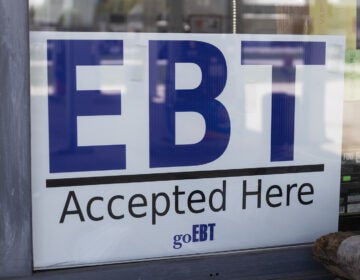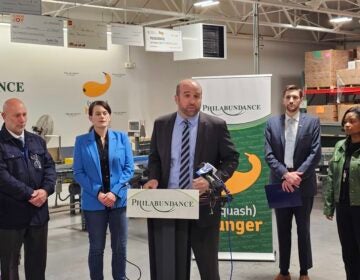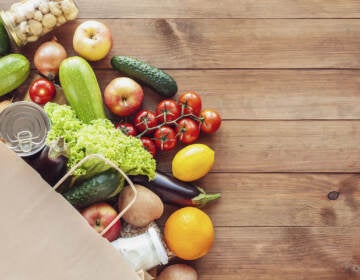Food pantries hit with more need, less supply during pandemic
Organizations that feed those in need have been forced to change the way they operate during the pandemic.
Listen 3:29
Volunteer Steve Huber drops off a box of food to a senior is public housing. (Kimberly Paynter/WHYY)
Steve Huber was buzzed in through the back door of an apartment building for seniors in Philadelphia’s Poplar neighborhood. Wearing a face mask and a pair of latex gloves, he carried two 30-pound boxes of food up to the third floor and started knocking on doors.
“Is this Mr. Mattos? I’ve got groceries,” he said through the door. “Want me to leave them outside the door? Can you lift it?”
Huber took a couple steps back into the hallway as the door opened and an elderly man peered out.
“You good?” asked Huber.
“I’m alright,’ said the man. Huber picked up the second box and moved to the next door. “Take care now,” he said. “God bless you.”
Huber is a pastor at Liberti Church, a Reformed Protestant church that has locations in Philadelphia and surrounding areas. While he occasionally participated in the church’s program to distribute prepared meals to homeless people, he has stepped up his volunteering to deliver groceries to senior citizens sheltering at home.
“There are safe ways to volunteer. This is a practical way to love our neighbors,” said Huber. “With hand sanitizer and a simple mask, dropping a box of groceries on a stoop is a simple way to bless somebody.”
The Liberti Church is part of a network of 80 churches in Philadelphia called Easter Outreach that normally gives away about 10,000 prepared meals on Easter. Because of the pandemic this year, the coalition has changed gears to deliver boxed groceries every day, in small batches of about a hundred.
It is an ongoing effort, for as long as elderly Philadelphians are discouraged from leaving their homes during the pandemic.
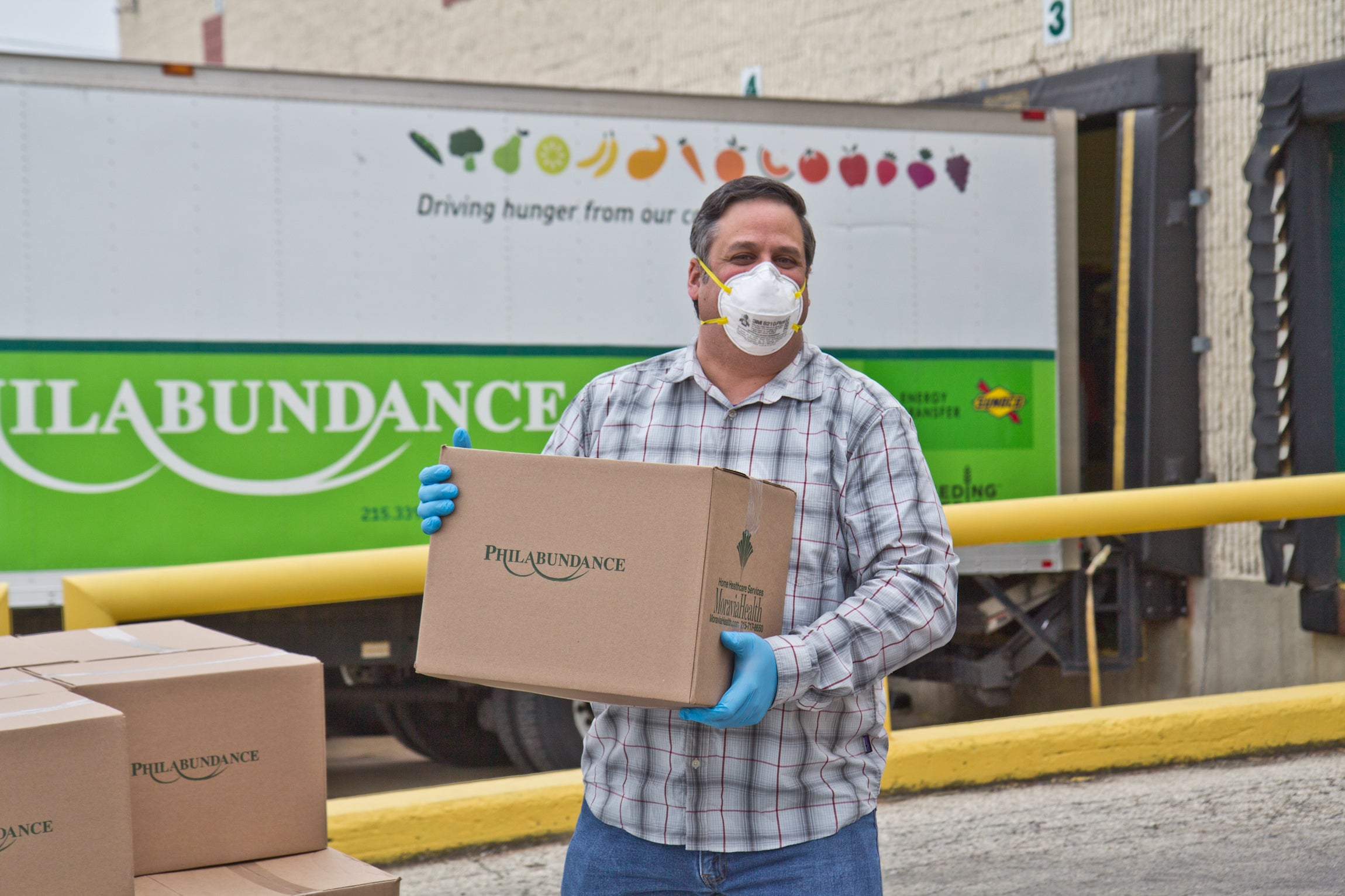
“Our deliveries are about 1,000 a week. We’re doing groceries, not meals,” said Vito Baldini, director of Easter Outreach and also a minister at Liberti. He was directing traffic in a parking lot of a Philabundance warehouse where the boxes are packed. “It’s safer. Our distributions are smaller and more focused. We’re delivering 100 from this site.”
Organizations that feed those in need have been forced to change the way they operate during the pandemic as demand rises, supply falls, and getting food into people’s hands becomes more difficult.
Philabundance, one of the hunger relief organizations in the region, normally serves about 90,000 people a week by supplying food to pantries throughout southeastern Pennsylvania and southern New Jersey.
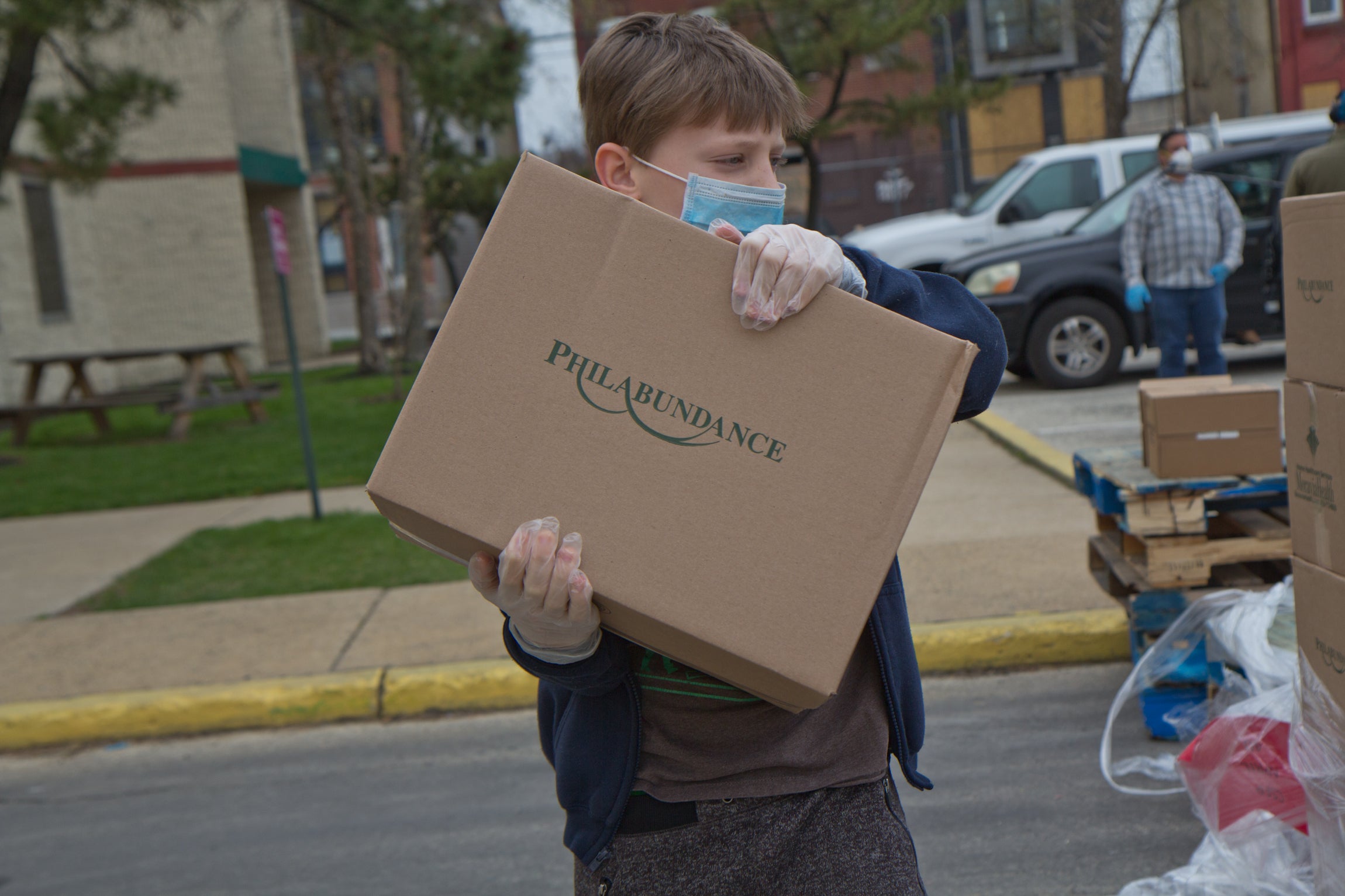
“Now that COVID-19 has rocked the entire world, we are seeing numbers increase,” said Samantha Retamar with Philabundance. “We’ve haven’t been able to quantify the number yet because everything is moving so fast.”
Individual food pantries, where volunteers recognize their recipients and know many of them by name, are seeing between 30% and 50% more people. Many are coming for the first time.
As more adults are out of work and as more kids who normally get free meals at school need to eat at home, more households are learning to lean on food pantries.
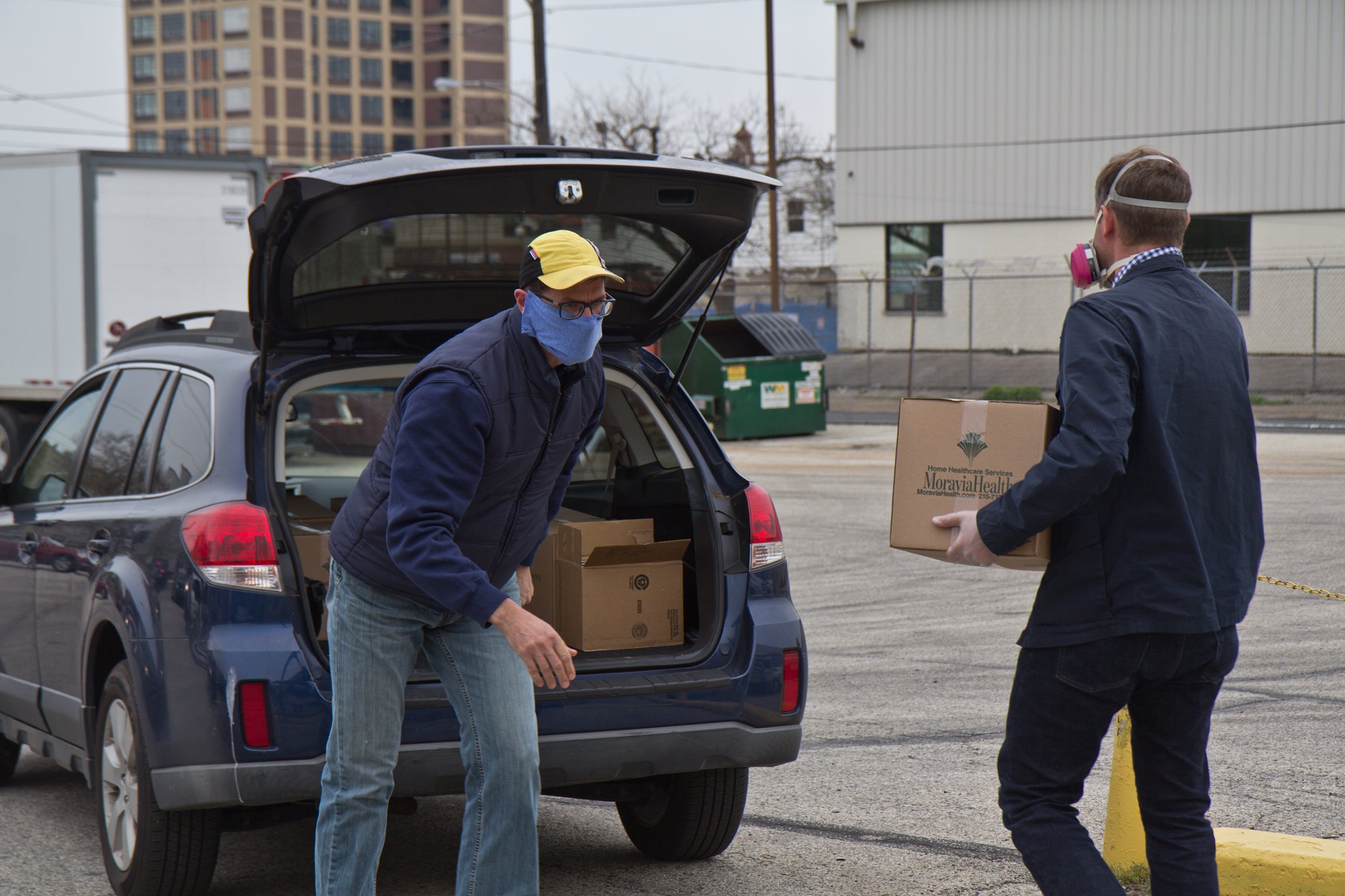
“We’re getting lots of inquiries from people who have never used a food bank before,” said Maddie Burgess, the pantry manager for the Bucks County Housing Group, operating in Doylestown and Penndel. “Some people don’t even know the food is free. They are calling up and asking, ‘Do I have to pay for it?’ Food insecurity is something new to a lot of people right now.”
The BCHG used to run a food pantry that operated like a store, where people were able to go inside the building and choose the items they wanted off of shelves. That can no longer happen due to social distancing rules. Burgess says her Penndel location is operated through a window, and the Doylestown location is only drive-through.
“We never thought we’d be doing drive-through service,” she said. “We have a tiny parking lot in Doylestown. I never thought I’d have to direct traffic.”
The Gateway Community Action Partnership has seen the number of new people visiting its pantry in Bridgeton, N.J. double in the last month.
To meet the growing need in Philadelphia, the city partnered with Philabundance and the Share Food Program to establish 40 additional food distribution sites, as well as take-away lunch programs through schools.
On the other side of the hunger relief equation, the supply is also down. Normally, much of the food in pantries is donated by restaurants and grocery stores looking to clear items off their shelves that are nearing their expiration date. Philabundance counts on more than 200 regional grocers who participate in its Grocers Against Hunger program.
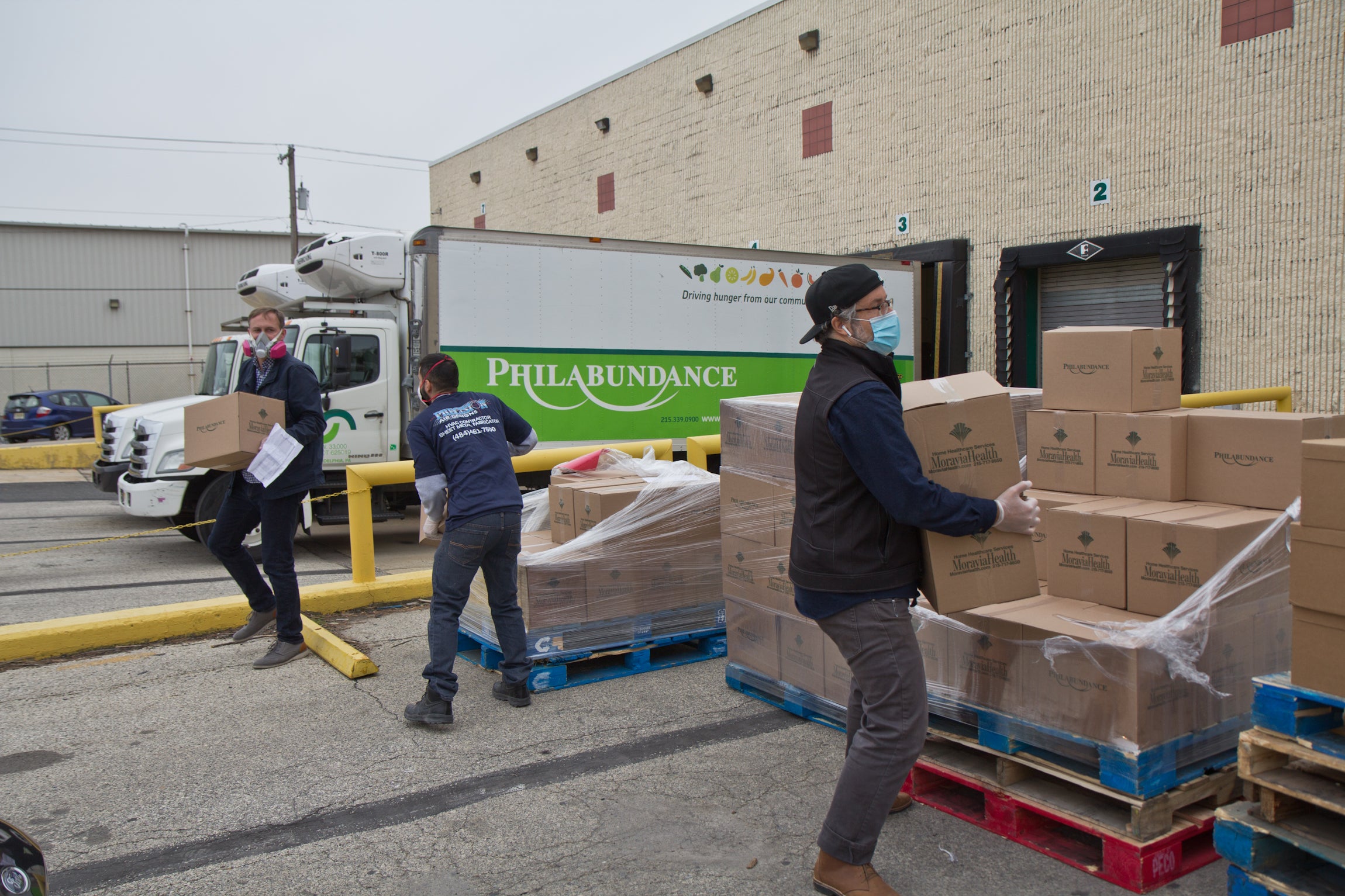
But as more shoppers are panic-buying – grabbing everything they can and storing it in their homes – that leaves fewer leftovers for the hungry.
“What’s fantastic is places like Giant, Acme, and Shop Rite are still donating what they can, but they can’t keep up with the donations they once did,” said Retamar.
Some pantries are having a hard time finding perishables – fresh vegetables, meat, and dairy – and are pushing more canned and dry foods. Retamar predicts even those non-perishable items will soon become scarce.
“Food sourcing is extremely difficult. It comes from a really big kink in our supply chain going back to the manufacturer and the farmer,” she said. “With panic-buying, on a manufacturer level they are trying to keep up with demand. A lot of shelf-stable canned goods come from overseas.”
Retamar said that while the pipeline of canned goods usually takes about seven days to replenish, with demand so high, it might take several weeks or months to get back up to speed.
The long tail of the pandemic will likely be felt for much longer than that.
“Once the dust settles, food banks are still going to be relied on heavily,” said Retamar. “This pandemic has knocked a lot of people down. People are hurting and struggling, and they are going to have to get back on their feet. The food system has to be there.”
WHYY is your source for fact-based, in-depth journalism and information. As a nonprofit organization, we rely on financial support from readers like you. Please give today.



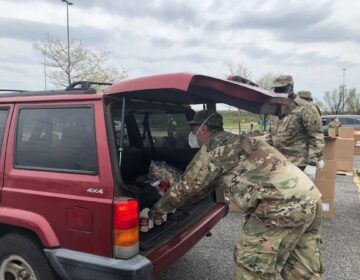
![CoronavirusPandemic_1024x512[1]](https://whyy.org/wp-content/uploads/2020/03/CoronavirusPandemic_1024x5121-300x150.jpg)
